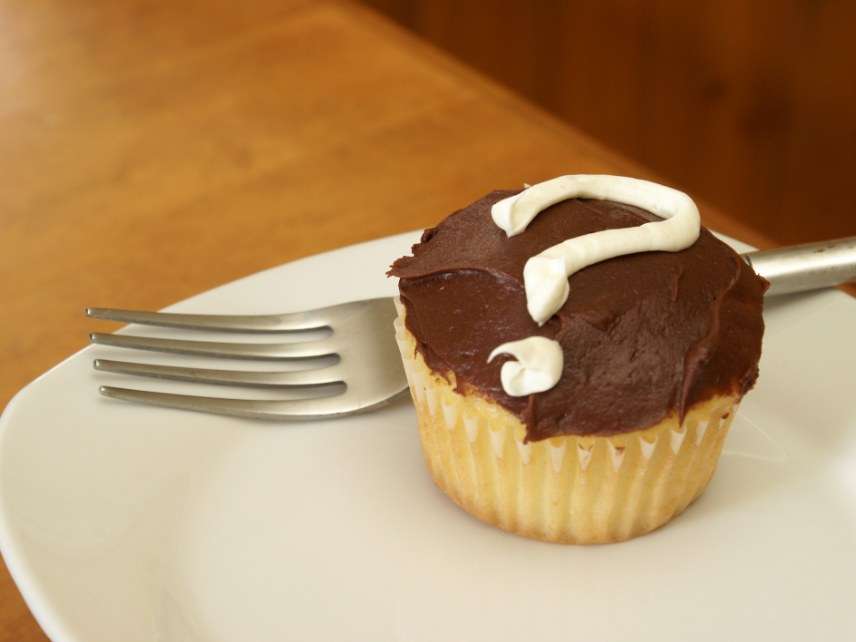Case Involving Baker Who Refused To Make a Transgender-Friendly Cake Pushes Forward
Is he rejecting a customer or rejecting a message? The difference matters.

A federal judge appears willing to let the baker at the heart of a Supreme Court ruling about gay wedding cakes move forward with a lawsuit asking whether Colorado can force him to bake a cake celebrating transgender transitions.
Jack Phillips of Masterpiece Cakeshop in Lakewood, Colo., filed a federal lawsuit in August, claiming the state was targeting him under its antidiscrimination laws for his refusal to bake a cake for a transgender customer. The customer, an attorney named Autumn Scardina, filed a complaint because Phillips declined to bake her the cake she wanted.
Scardina says Phillips refused to serve her because she's transgender. Phillips says that's not true: She specifically asked for a cake with a "blue exterior and a pink interior" to reflect her transition. Phillips has religious objections to recognizing sex changes and the celebratory message the cake was sending. He says he wasn't rejecting her specifically. He was rejecting the message of the cake and invoking his First Amendment right to not be compelled to express speech with which he disagrees. He would have declined to make the cake regardless of who asked for it.
Phillips and Masterpiece Cakeshop were the subject of a Supreme Court decision earlier this year in which the justices ruled, 7-2, that Colorado erred when the state found Phillips in violation of state law when he refused to bake a gay wedding cake. The justices, though, did not make any sort of determination that the baking of a cake is or is not a form of expressive speech. Instead, they determined that Colorado's Civil Rights Commission had approached the case with a clear animus toward Phillips' religious freedoms under the First Amendment.
This complaint by Scardina preceded that ruling, and Phillips is arguing that once again Colorado is targeting him because of animosity toward his religious faith.
This week, Colorado's attorney general tried to get Phillips' lawsuit dismissed because it's still working its way through Colorado's enforcement system. There's a state hearing scheduled for February.
But Senior Judge Wiley Y. Daniel of the United States District Court for Colorado seems reluctant to keep the case under the state's control, according to the Associated Press. After all, he noted, it was the Supreme Court justices themselves who took note of the state officials' apparent hostility to Phillips' religious beliefs. Instead, Daniel says he's inclined to let the case move forward and wants to hear more evidence before making a written ruling later.
When I blogged about this lawsuit back in August, I noted that this appeared to be a much more obvious case of compelled speech than a gay wedding cake. In the wedding cake debate, there was disagreement over whether simply making the cake counts as a statement of support for same-sex marriage, irrespective of whatever might actually be on the cake. In this case, Phillips is being ordered to make a cake that sends a very clear and obvious message about support for transgender identities. It's as wrong (and unconstitutional) for Colorado to order Phillips to produce a cake that expresses support for gender transitions as it would be to force him to produce a cake expressing disgust or dislike for them.
